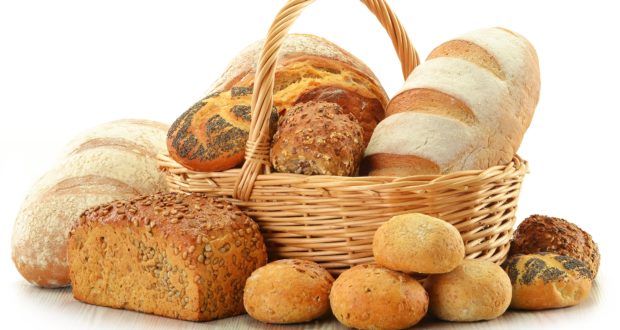How Refined Carbohydrates Affect your Health
Chances are you’ve heard a lot about carbohydrates in the past. This attention is certainly warranted, as carbohydrates play a major role in our diets and everyday lives. However, many consumers seem to be unaware that there are many kinds of carbohydrates, with each type leaving its own distinct imprint on your health. Unhealthy types of carbs, known as refined carbohydrates, can pose a serious threat to your health if consumed in excessive quantities. Through wise shopping decisions, it is fairly easy to limit your intake of these dubious chemical compounds.
What Are Refined Carbohydrates?
Refined carbohydrates are essentially carbohydrates that have been stripped of fiber, water and most of their nutritional value through food processing. While such manufacturing techniques do lengthen the shelf life of food products, they also cause the various sugars inside the product to cluster together in a more concentrated manner. When refined carbohydrates are digested by the human body, our bloodstreams often find themselves ill-equipped to handle such large influxes of sugar, causing our blood sugar levels to rapidly rise and fall at an unhealthy rate. These wild swings in blood sugar levels can cause fatigue, irritability and appetite problems, among other difficulties.
The digestive problems don’t stop there – once sugar is in our bodies, our digestive system must break it into smaller pieces, allowing the sugars to be used for the body’s benefit. Typically, the digestive system uses the carbohydrate’s other nutrients to accomplish this task; with refined carbohydrates, it does not have this luxury. As a result, the digestive system must tap into the body’s nutrient supplies to help digest these concentrated sugars. As you can expect, excessive consumption of refined carbohydrates forces the digestive system to drain the body’s supply of nutrients, leading to nutritional deficiencies inside the body. A diet high in refined carbs can also cause unwanted weight gain, and even lead to obesity.
The List of Offenders
Some of the biggest sources of refined carbs should come as no surprise; for example, a number of sodas and beers contain refined corn syrup. Unfortunately, refined carbohydrates can lurk in even supposedly healthy foods; refined corn syrup is also found in wines and fruit juices. Refined sugars are frequently added to frozen fruits and vegetables; this causes the fruits and vegetables to lose much of their nutritional value, and turns their healthy carbohydrates into unhealthy carbs.
Another perpetrator is white flour, which is used to make bagels, bread, muffins and the majority of packaged cereals. White flour is often combined with refined sugar, resulting in an unhealthy cocktail found in doughnuts, cookies, cupcakes, pies and cakes. Numerous snacks are also made with this combination of refined carbs, including candy bars, candy pretzels and potato chips. White flour can potentially raise your level of triglycerides, a type of body fat that can put your cardiovascular system at risk of heart disease.
To make matters worse, white flour is often included in products under various different names; you might look in vain for “white flour” on a product’s ingredients list. If you’re concerned about white flour, look for the words “wheat flour,” “stoned wheat,” “cracked wheat,” “100% wheat” and “multi-grain.” White bread, white pasta and white rice all contain white flour as an ingredient.
Healthier Alternatives
The only good news regarding refined carbohydrates is that they are fairly easy to remove from your diet. First, replace products made with white flour with whole grain products. You can spot such products by glancing at the ingredients label; whole wheat grains are usually made with whole wheat, corn, barley, oats and rice (one of these items will likely be listed as the first ingredient.) Conversely, products that list enriched or bleached grain as a main ingredient should be avoided. Purchase fresh fruits and produce in lieu of frozen fruits and veggies, and opt for crackers, breads and pastas that contain at least 2g of fiber per serving. For cereals, concentrate on brands that offer at least 5g of fiber per serving.
The widespread presence of refined carbohydrates is yet another reason why it can be so difficult to craft a healthy diet. By replacing such unhealthy ingredients with healthy carbs, you can make significant progress towards living a healthier lifestyle.
 Natural Knowledge 24/7 Educate yourself with nutrition, health and fitness knowledge.
Natural Knowledge 24/7 Educate yourself with nutrition, health and fitness knowledge.






